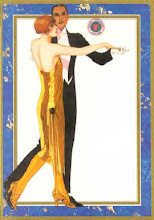A Theory of Health Care Spending
For a good while, I've had a half-baked and only half-joking theory that health care spending would not be so high if we were not constantly reminded of all the things that could be wrong with us.
I watch or listen to television news in short bursts of a few minutes each throughout the day. My general impression is that well over half – perhaps even three-quarters – of commercials are disease related. To see if that is anywhere near true, I grabbed a book yesterday morning and settled down to spend a random hour with television to make notes on the topics of the commercials.
That much time was not needed. I was shocked to find that in the period of one, three-minute commercial break, remedies for the following diseases and conditions were advertised:
COPD
High blood pressure
High cholesterol
Dry skin
Headache
Insomnia
Allergies
Nasal congestion
Foot problems
Heart disease
Constipation
DepressionThat's a lot of health problems to cram into three minutes and it is repeated all day on all channels except, possibly, MTV which undoubtedly highlights acne cures.
I don't remember so many health-related commercials when I was a kid. “The heartbreak of psoriasis” comes to mind, along with “Speedy Alkaseltzer” and Bayer aspirin, but certainly no prescription drugs back then. I still don't understand why that last is done; it must drive physicians nuts to have patients demanding drugs advertised on television that may or may not be relevant to the patients' ailments.
My theory is that it all adds up – that we are bombarded with so many pictures and words about what might be wrong with us that thousands of people who otherwise feel healthy, run to their doctor asking for prescription drugs they saw on television and/or start buying over-the-counter remedies. Certainly the advertising must have an effect similar to reading disease symptoms – too much of that and you believe you've contracted something terrible.
It's just a theory, but I wonder – and I wonder if there were less health-related advertising, how many fewer doctor visits, prescriptions and OTC drug purchases there would be.
IN THREE WORDS
3 hours ago






4 comments:
Great blog!
Gov't and Pharma have a vested interest in getting and keeping us sick - or at least to make us THINK we are. Once they can get you on a prescription, the gravy train really kicks in as they need to prescribe more drugs to combat the side effects...to the point you're not taking drugs for your original health problem anymore, but to simply combat side effects of the "cure." Call me a cynic (HAHA) but I think it's all deliberately calculated, and in my view that's a bald-faced lie and a mortal sin - not to mention Russian roulette.
For years I was a medical transcriptionist and typed medical histories. I could not believe how many prescriptions the average person takes. Yet whenever the patient was a doctor - even an aging one with lots of physical problems- his drug list rarely included anything more than a daily aspirin.
And we all know the old joke, "What's the definition of a surgeon? A man with no scars."
Too true to even be funny any more.
That is too true to be funny, isn't it? Good point!! Thanks for this comment!
I've said for a long time now that pharmaceutical companies shouldn't be allowed to advertise. People see these commercials and go to their doc saying "I want that pill." Doesn't matter if they need it or not.
And many docs are way too quick to give in to patient demands for antibiotics. So many of these illnesses are viral and antibiotics do no good whatsoever.
What decade was that when we had the first big run of medical shows? the 80s? Now of course we have tons of them but all from the staff's perpsective and seldom the patient.
I remember those old shows where one of the greatest challenges of our favorite doctors were the alleged hypochondriacs chasing them down and giving them descriptions of their symptoms. In those days it was the worst of their pains in the asses.
Post a Comment